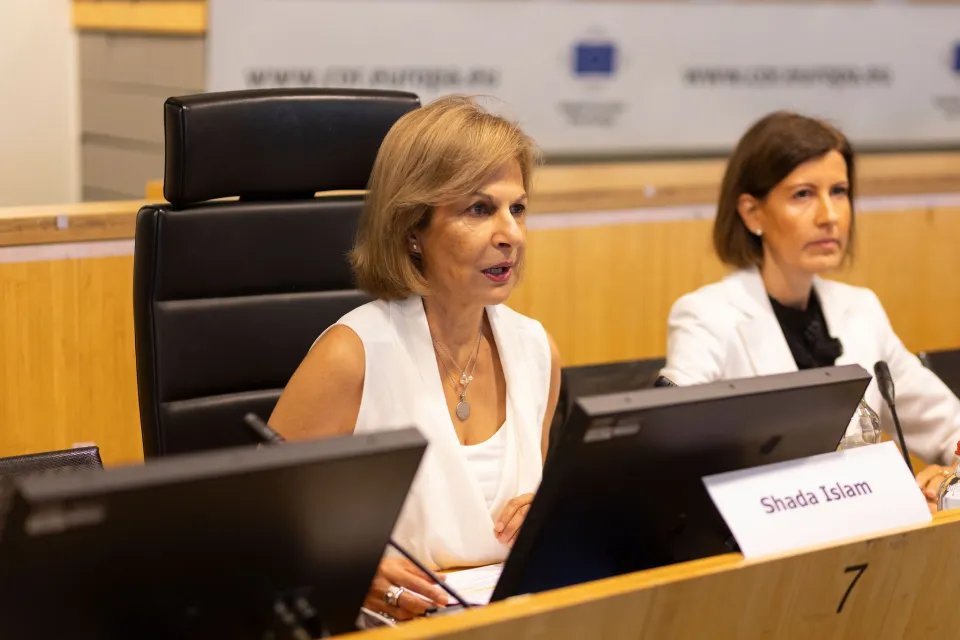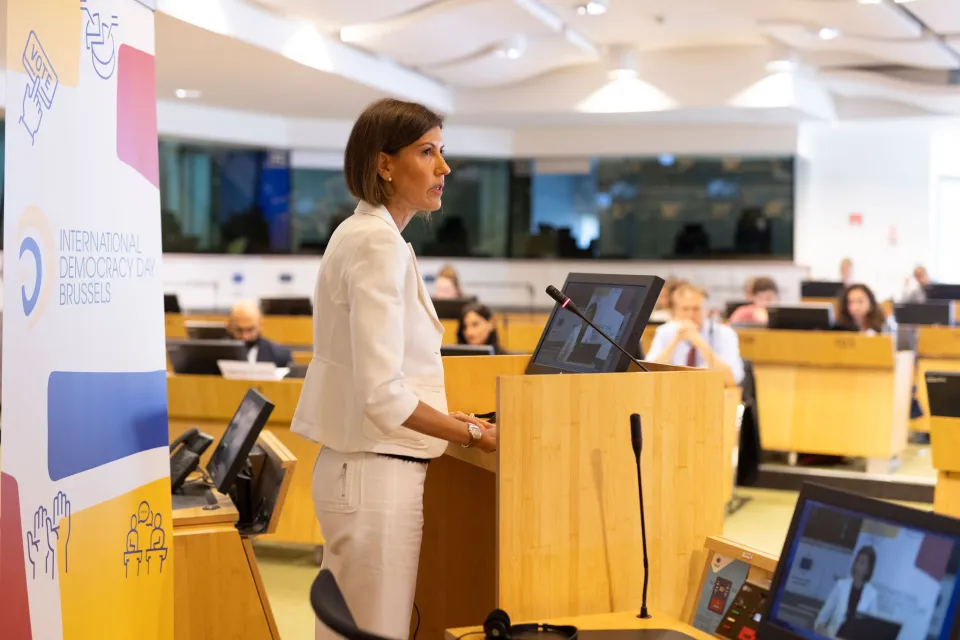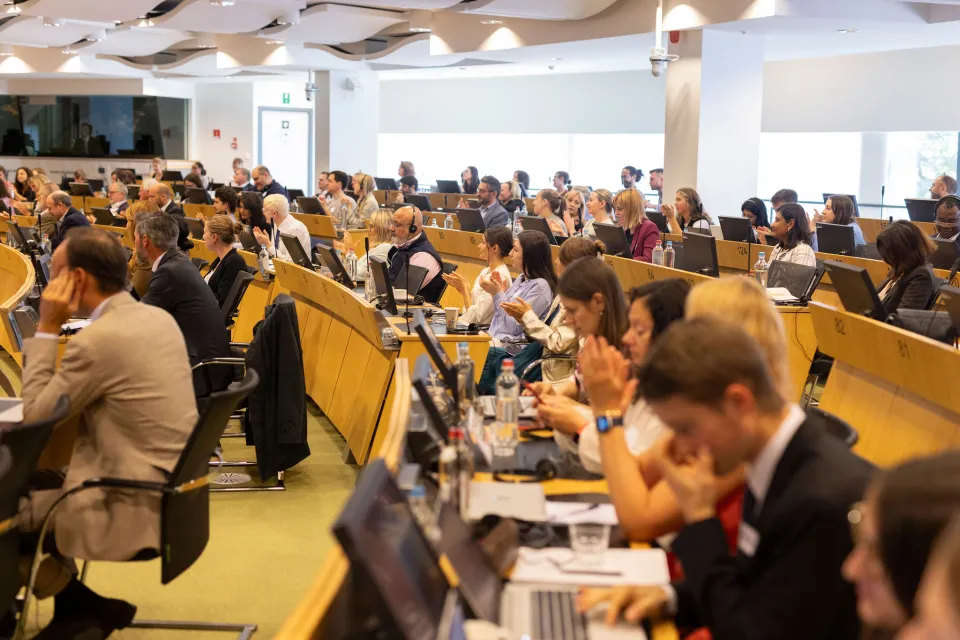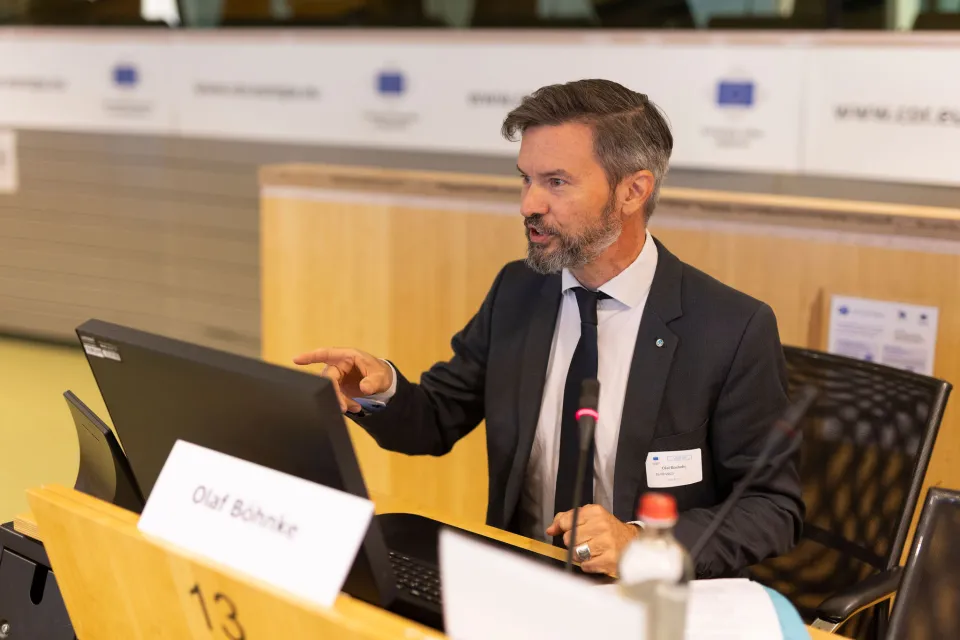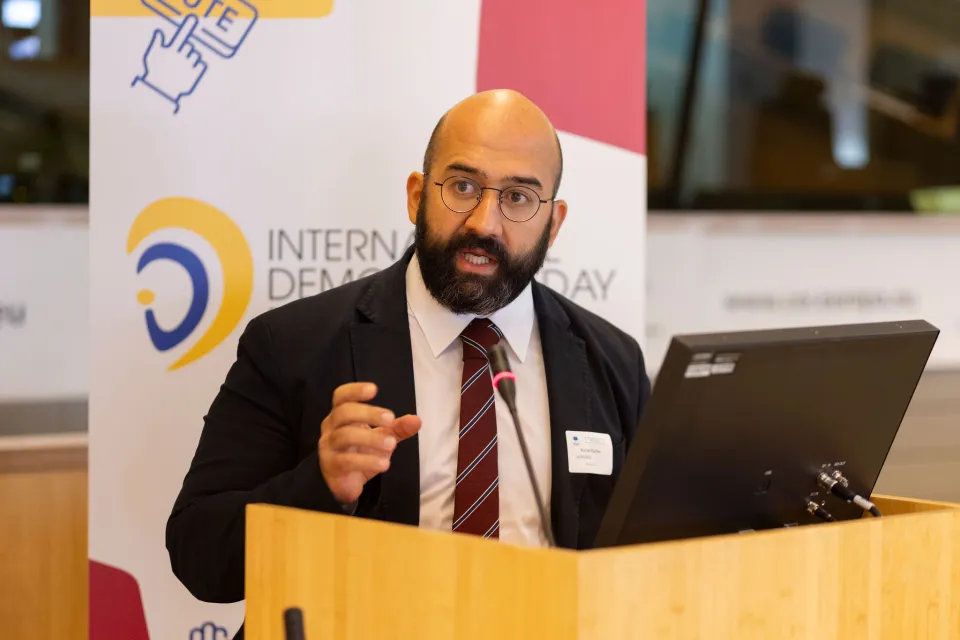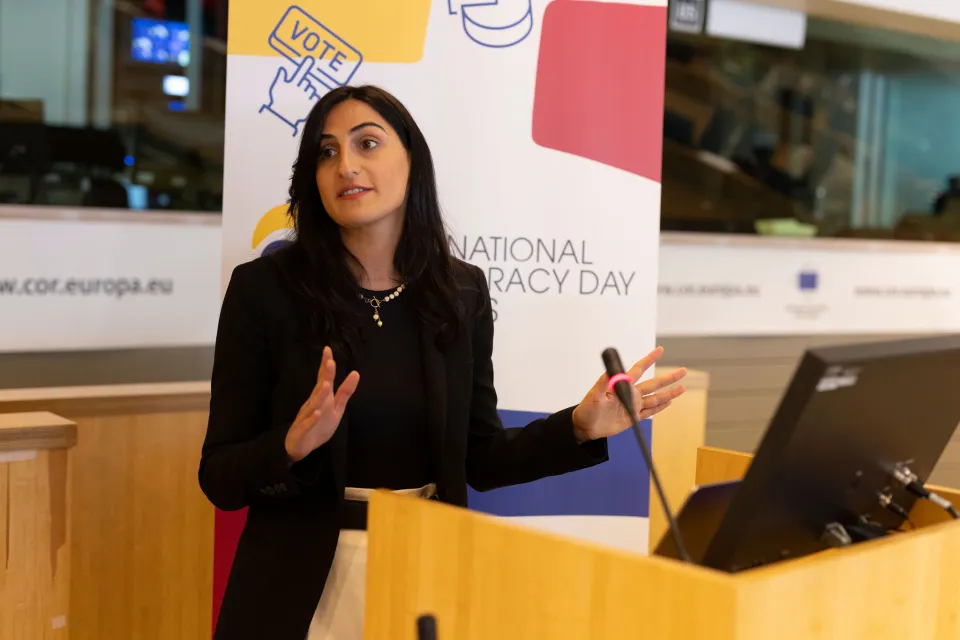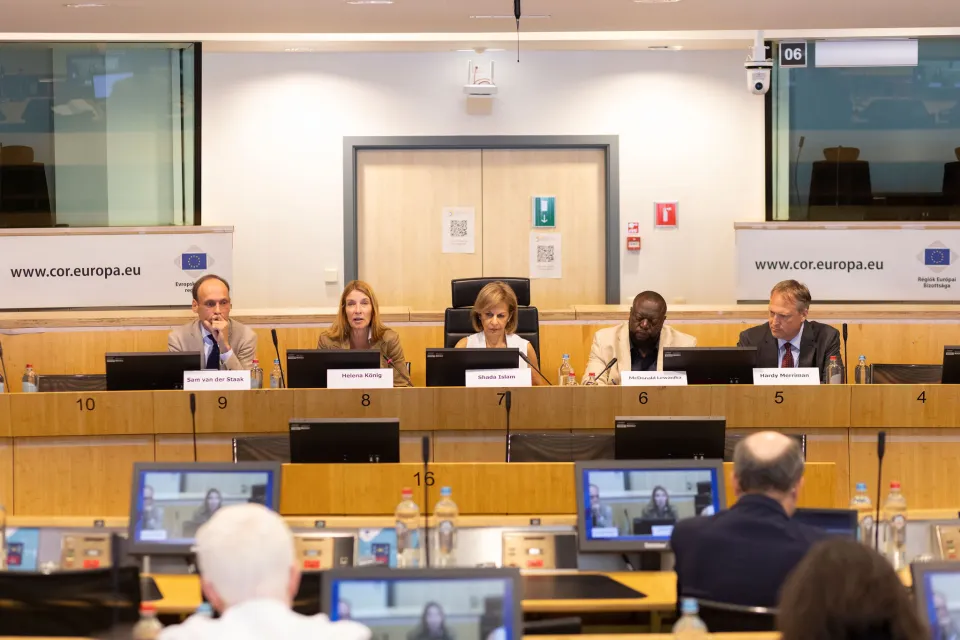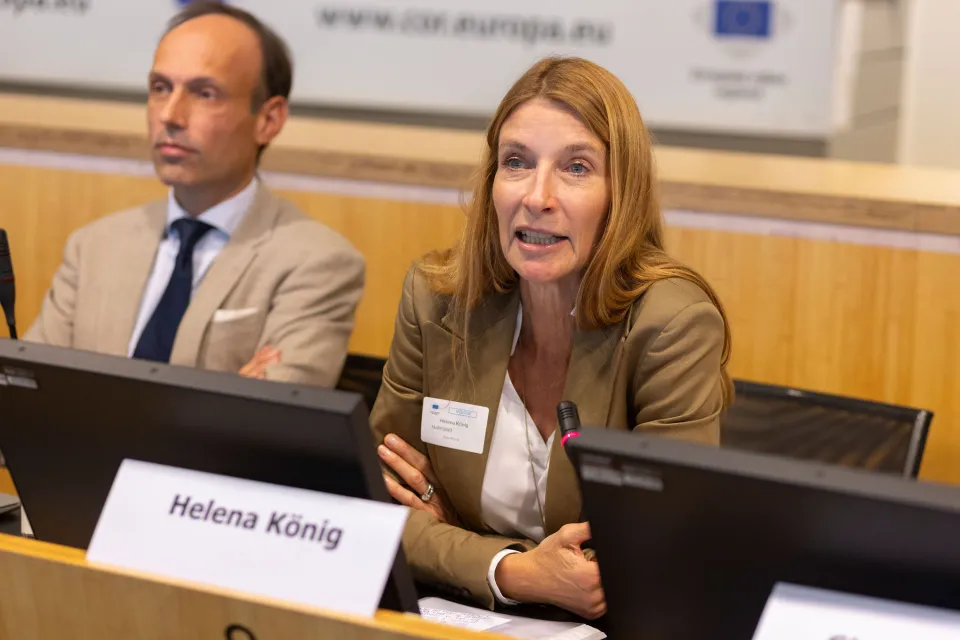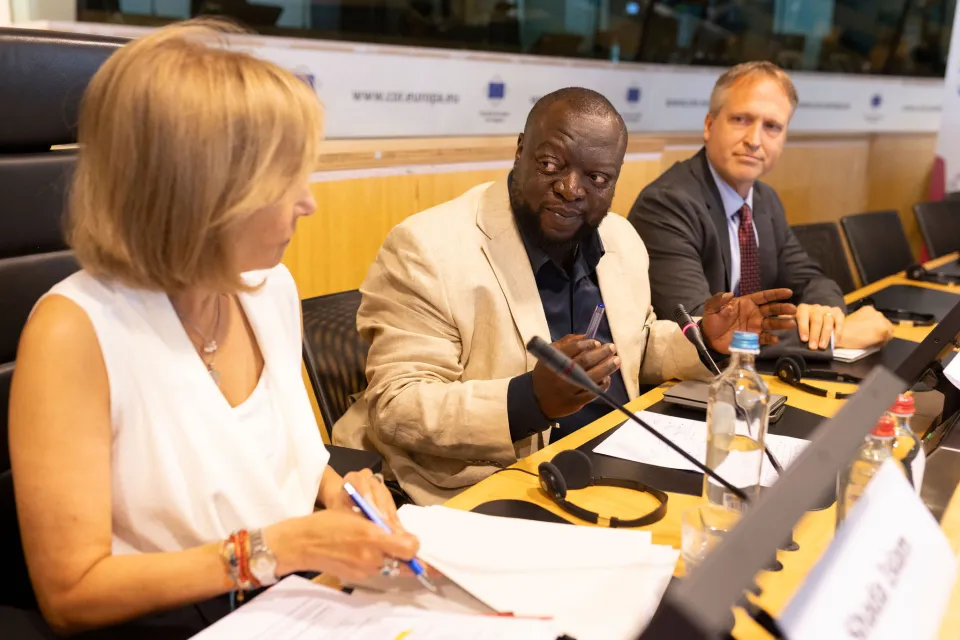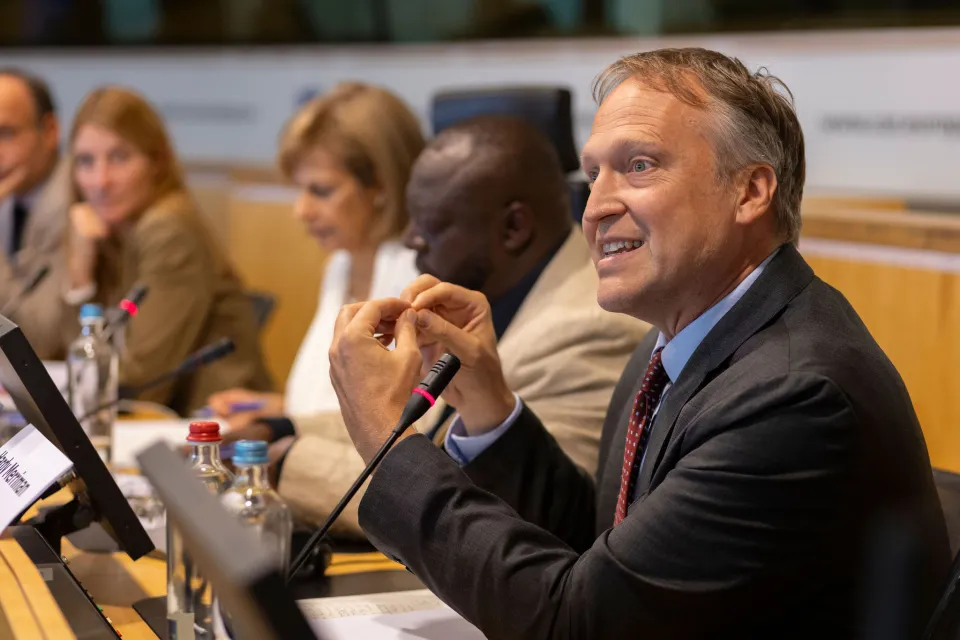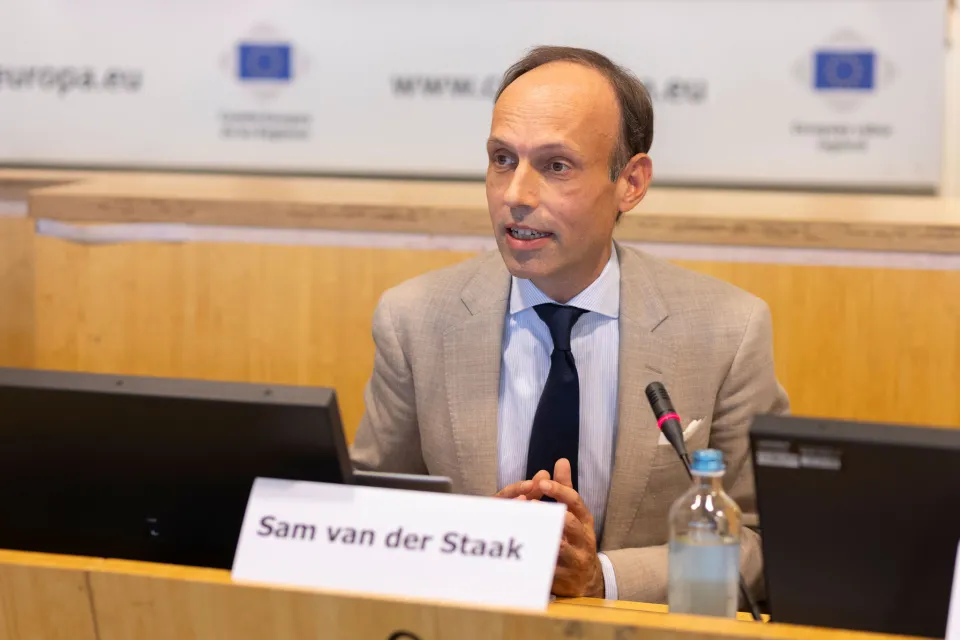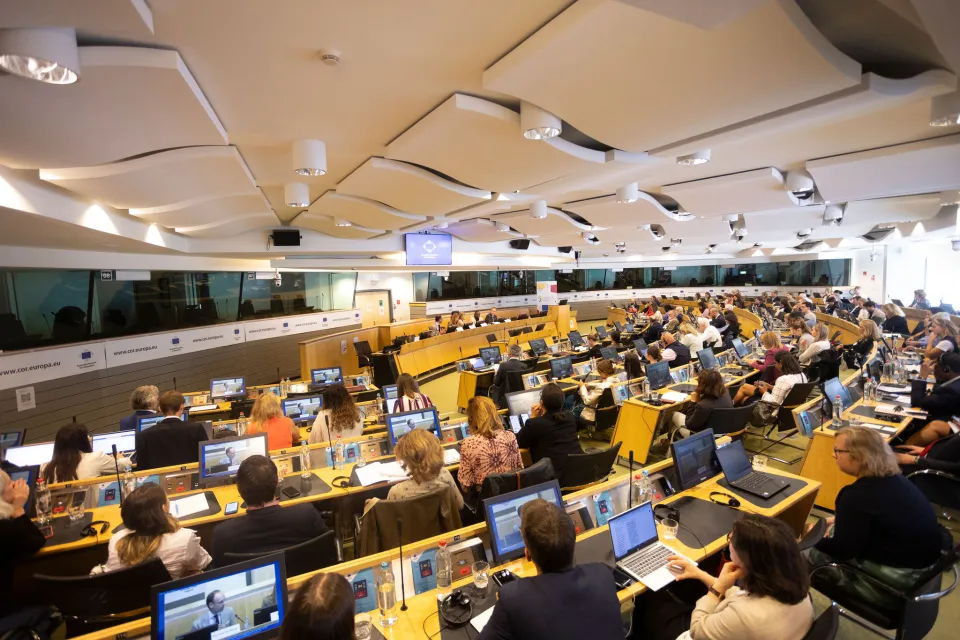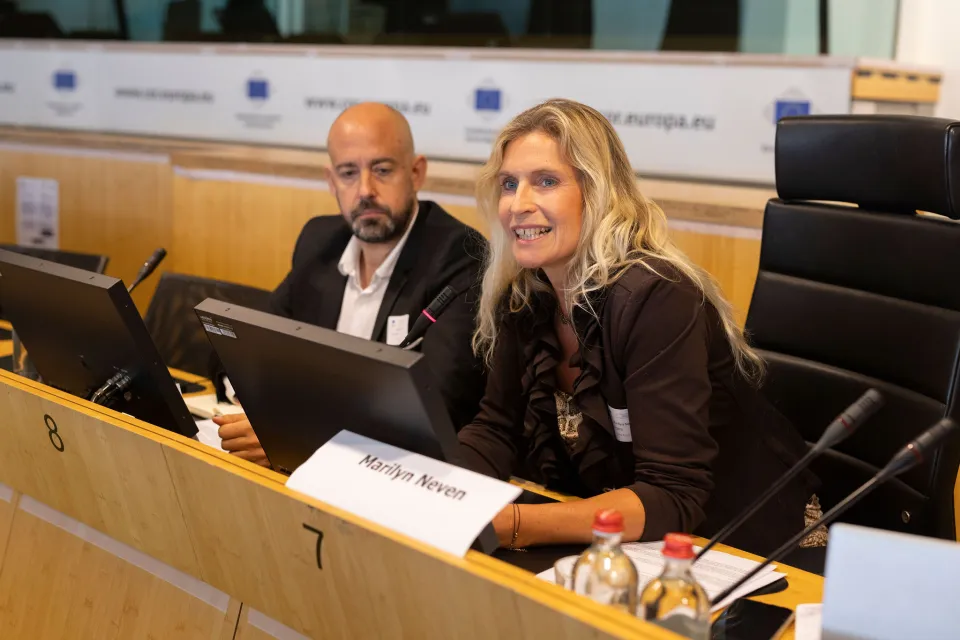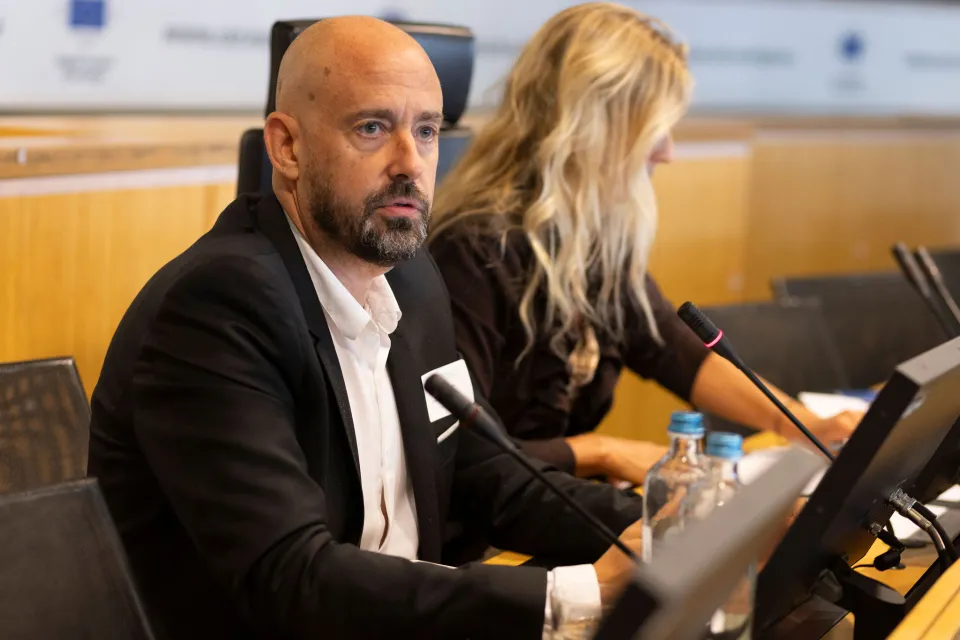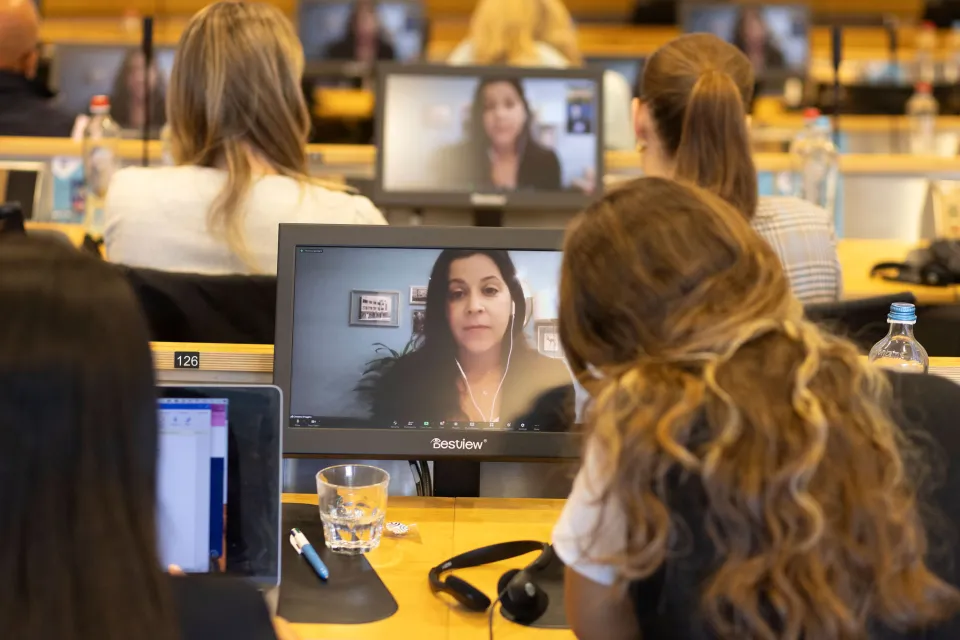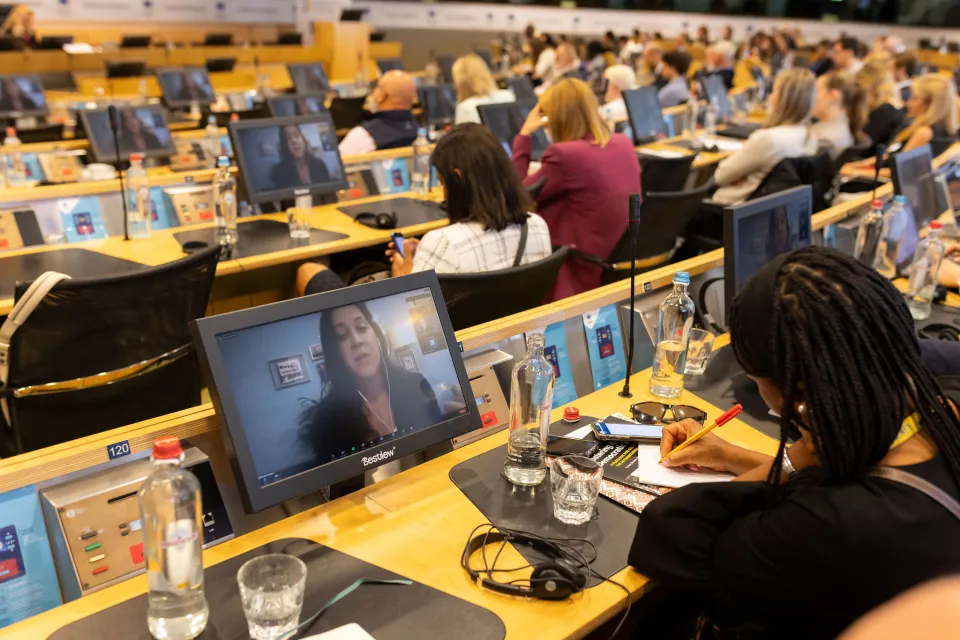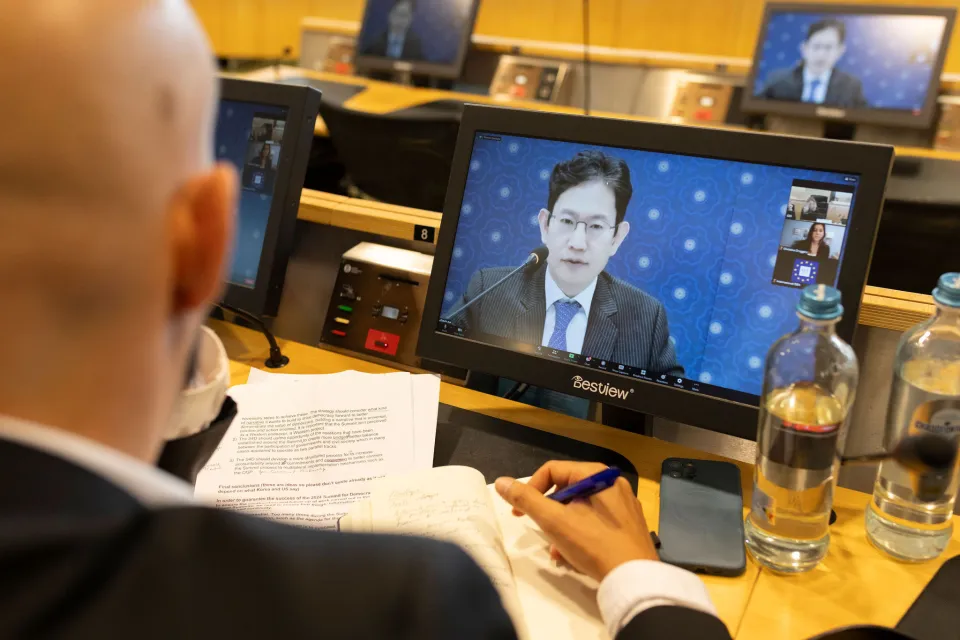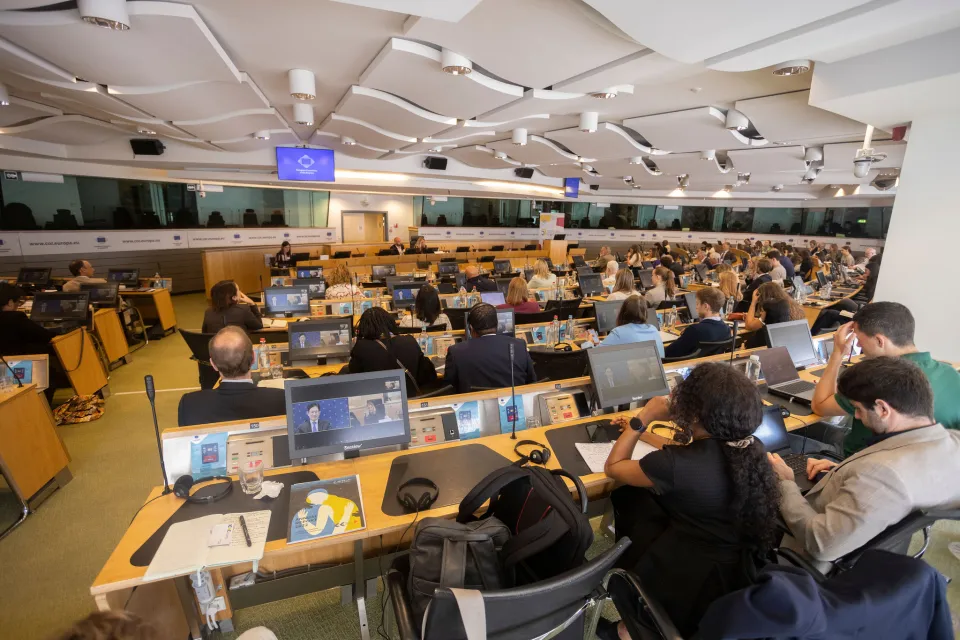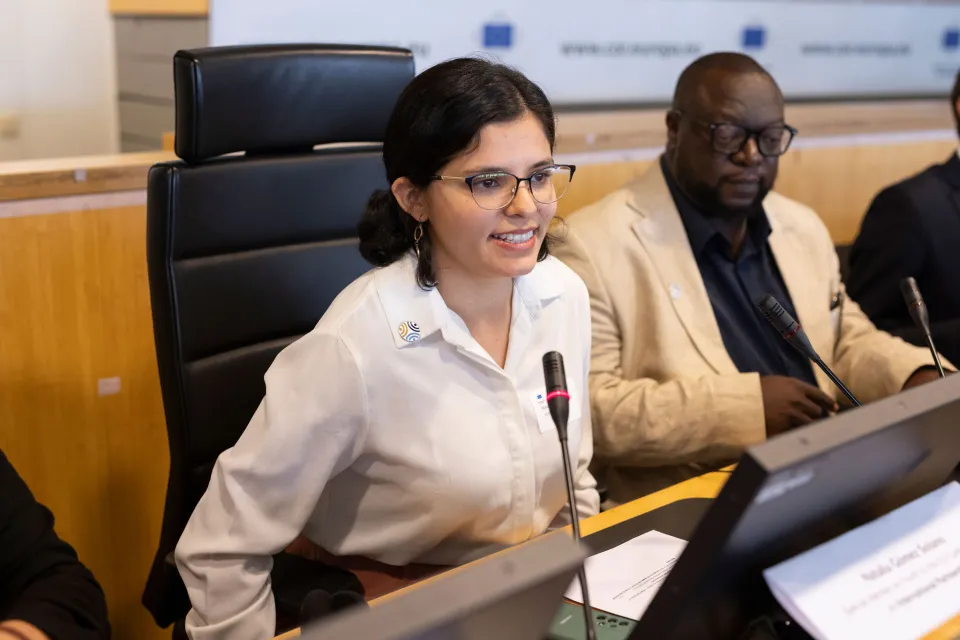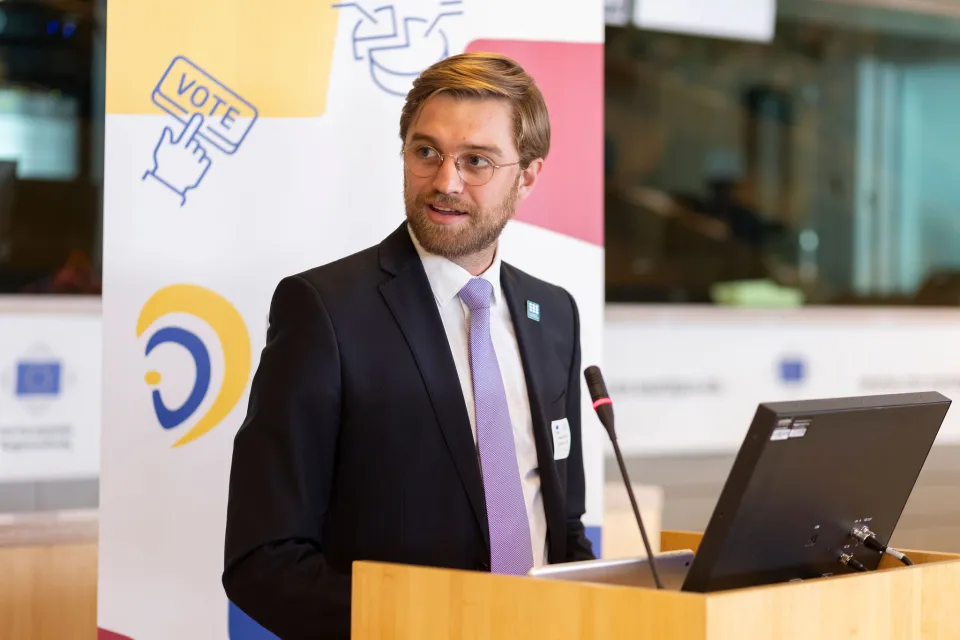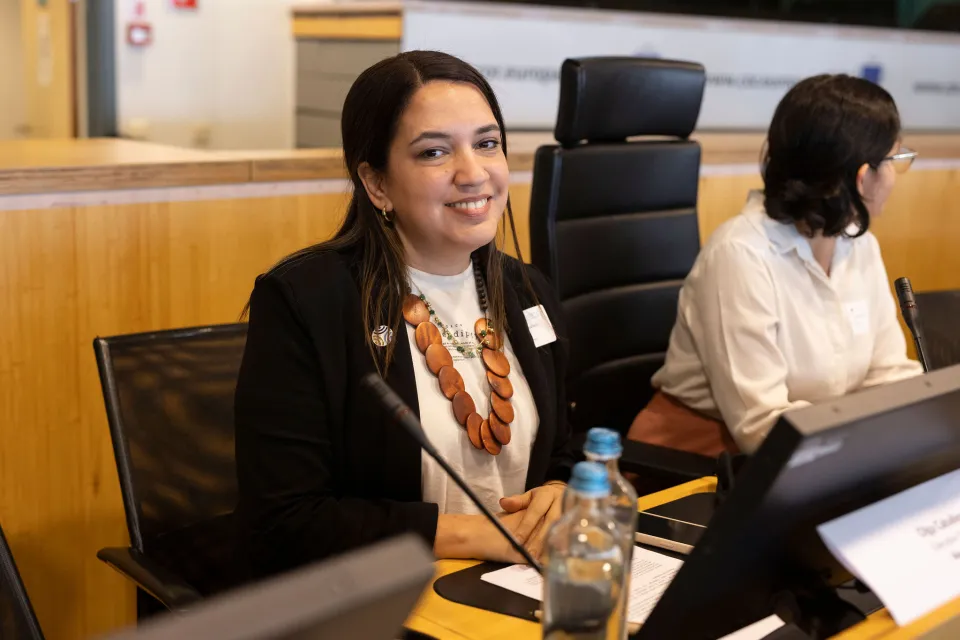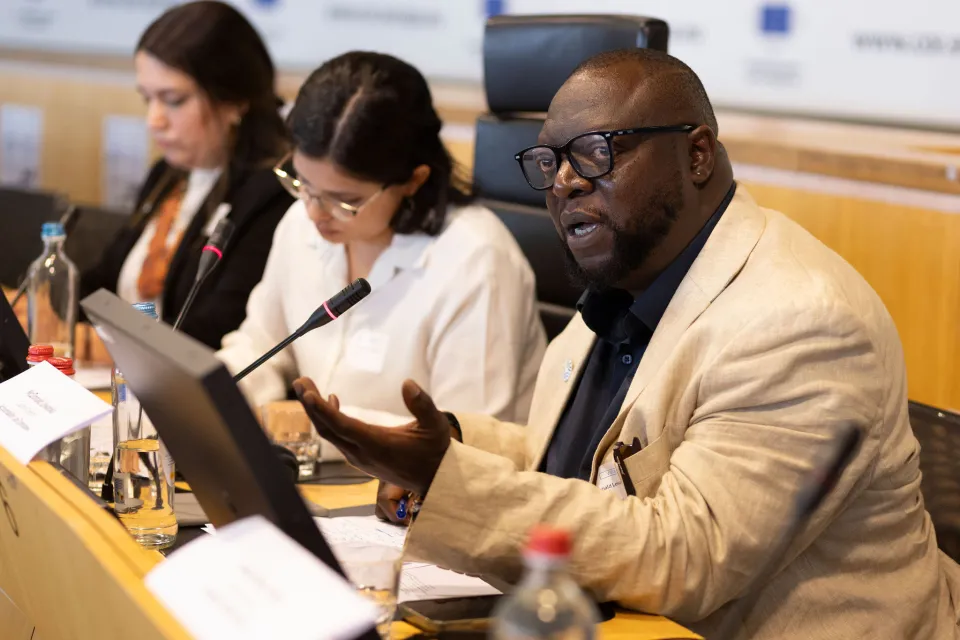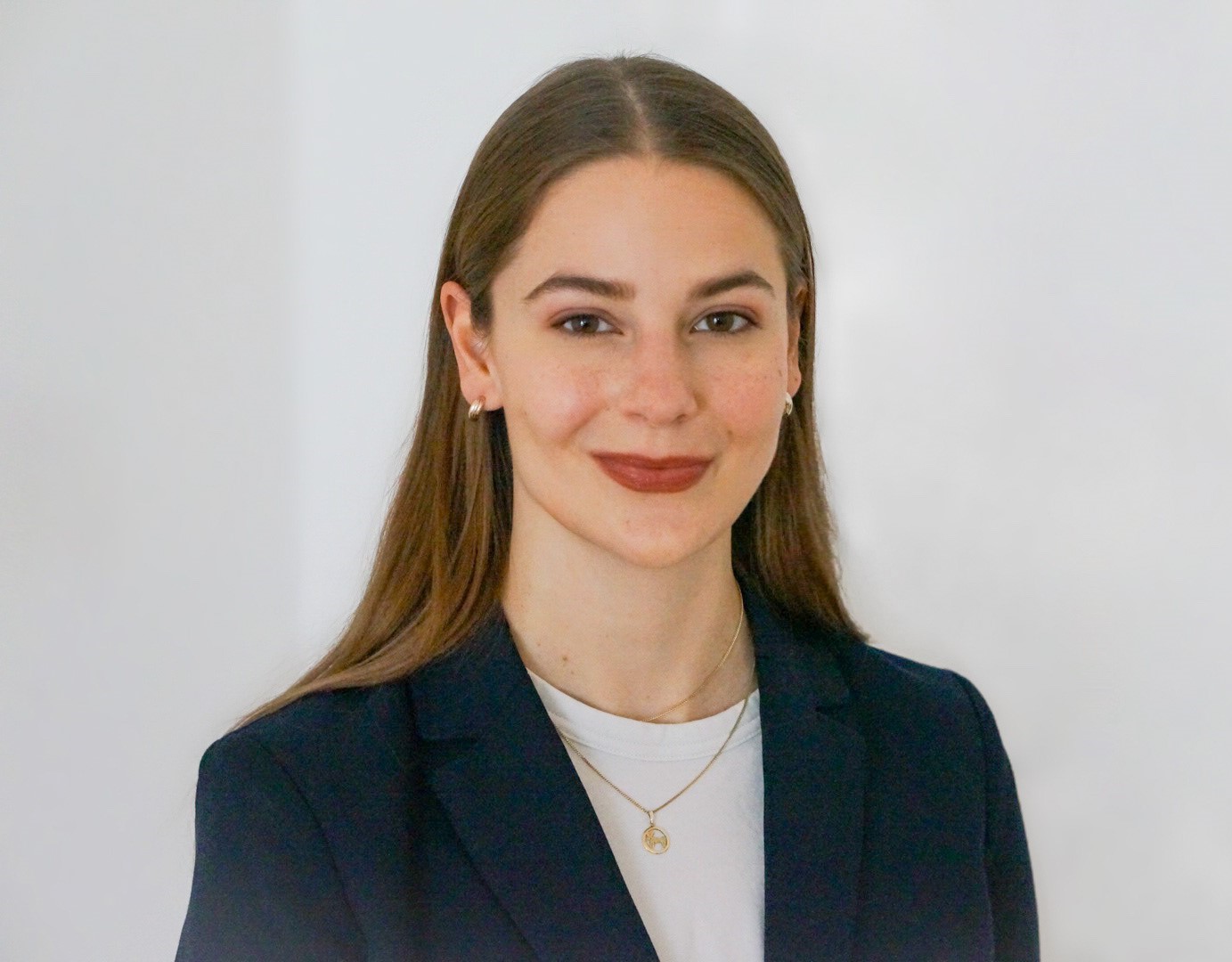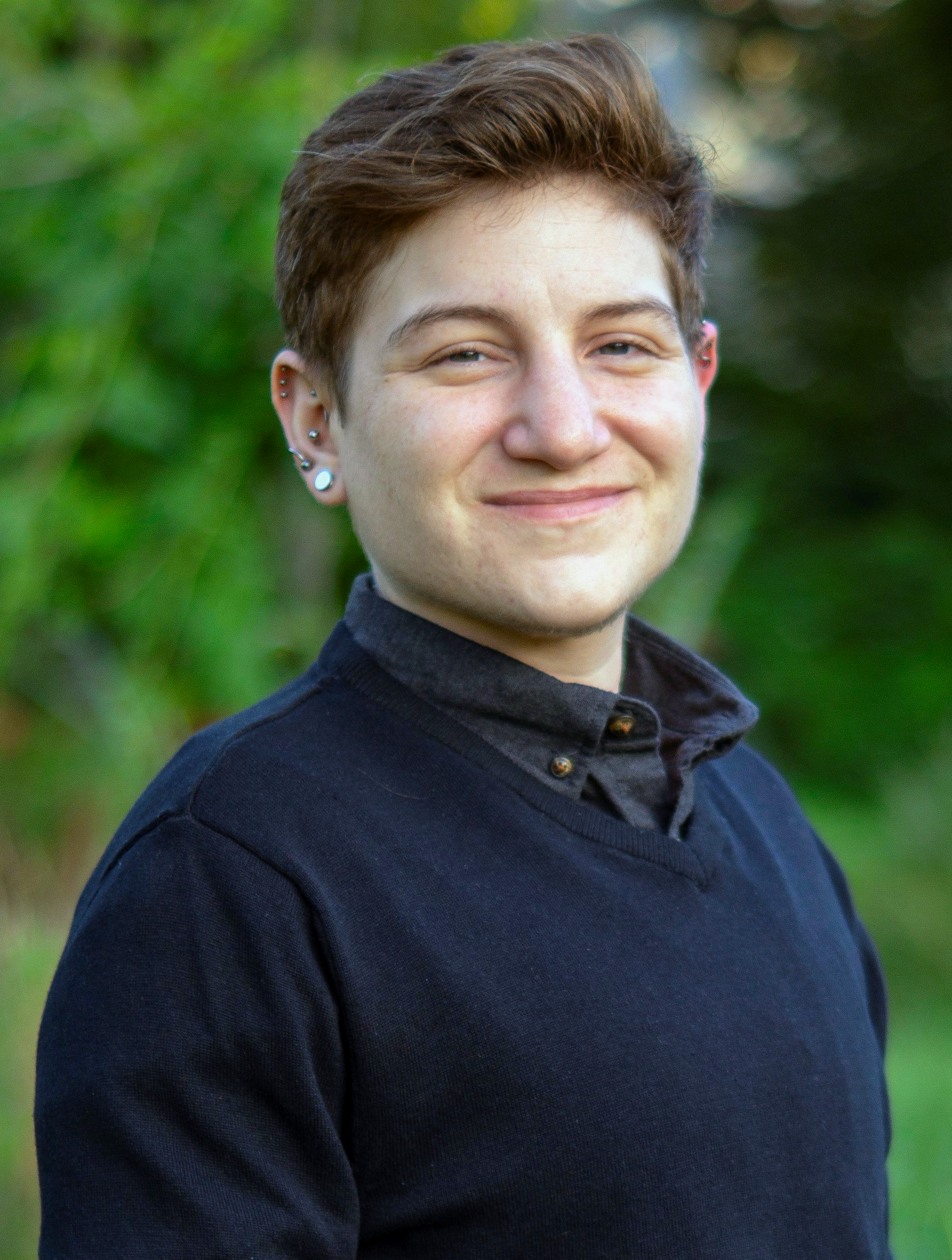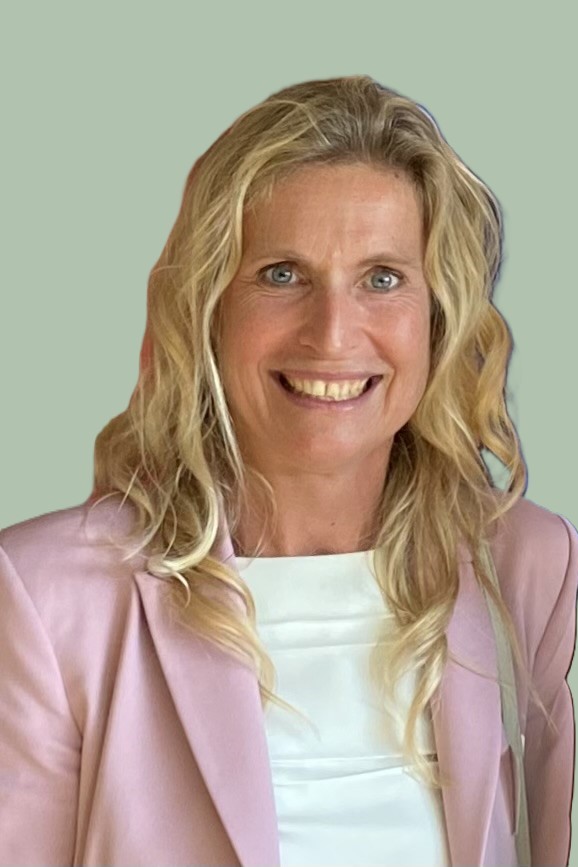International Democracy Day Brussels 2023
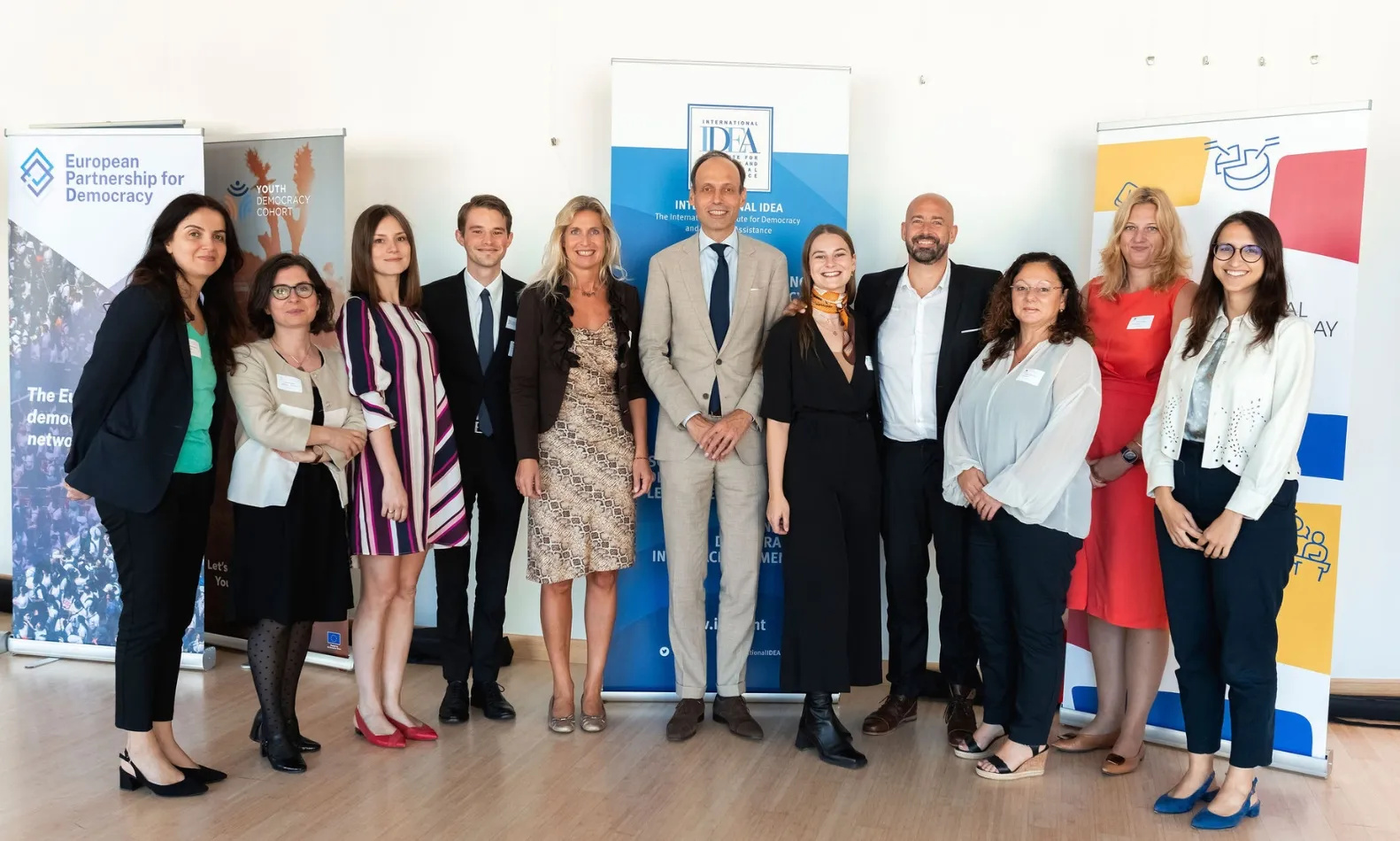
Christina Droggitis, Section Chief of the Office of Multilateral and Global Affairs at the Bureau of Democracy, Human Rights, and Labor, U.S. Department of State - citing U.S. President Joe BidenFor democracies are more than a form of government. They are a way of being, a way of seeing the world.
On 14 and 15 September 2023, International IDEA and its partners, the European Endowment for Democracy (EED), the European Partnership for Democracy (EPD), the European Network of Political Foundations (ENoP) and Carnegie Europe, organised the 2023 edition of the International Democracy Day Brussels.
More than 120 practitioners, policymakers, activists, academics, representatives from democracy organisations and other stakeholder gathered to discuss how a new wave of civic activism has met the challenge of rising authoritarianism worldwide and how the international community, especially the European Union (EU), can deepen ties with global pro-democracy movements.
Inclusivity was a key theme of the discussions, with speakers emphasising the importance of bringing in the voices of young people and from the Global South. Democracy support should be flexible and agile, avoiding one-size-fits all approaches and tailored to local contexts, while also coordinating internationally. These efforts can be supported through a universal narrative on democracy that demonstrates how it can deliver to citizens, and by building bridges between civil society and governments and between existing international efforts to support democracy. A concrete opportunity to revitalize democracy presents itself in the upcoming Summit for Democracy, a global effort initiated by the United States to bring together its partners around defending and promoting democracy. The Third Summit will be organised by the Republic of Korea in March 2024.
The full programme of the conference can be accessed here.
H.E. Elena Gómez Castro, Spanish Ambassador to the EU Political and Security CommitteeThe European Union remains for many the example to follow, their final goal. Let´s not fail them.
The second conference day was opened by moderator Shada Islam (Managing Director, New Horizons Project Geopolitical Strategy Advice and Analysis) who welcomed attendees and set the stage for the day. Opening keynote speaker H.E. Elena Gómez Castro (Ambassador to the EU Political and Security Committee, Spain) outlined the priorities of the Spanish Council presidency regarding ways to tackle the current era of democratic unrest. Firstly, the EU’s strategic autonomy should be strengthened, reducing the bloc’s vulnerability to outside shocks by autocratic regimes and enhancing its capacity to uphold democratic values. Secondly, the European way of life and that of future generations must be supported through the green transition. Thirdly, the EU’s social model must be preserved, and with it solidarity with the rest of the world. Finally, navigating a values-based approach centred around human rights, rule of law and territorial integrity will safeguard European unity.
Three short input sessions gave food for thought ahead of the three panel sessions:
Olaf Böhnke (Senior Advisor, Alliance of Democracies) presented the Democracy Perception Index 2023, which illuminates how democracy is perceived in different countries by people around the world and what they see as the most significant challenges. He highlighted that people have faith in democracy: Despite that only 57 per cent of people globally believe that they live in a democracy, 84 per cent of people still say that it is important to have democracy in their country. This underscores the importance of democracies delivering for their citizens. | In a keynote speech, Karam Nachar (Co-founder and Co-editor, independent news media Al-Jumhuriya) underlined the significant solidarity demonstrated between democratic movements worldwide. Democracy as a universal aspiration becomes especially important in oppressive contexts, making solidarity in democracy support all the more crucial. | Elene Panchulidze (Research Coordinator, EPD) gave an overview of the European Democracy Hub, an online platform that brings together analysts and policymakers on European democracy support. She emphasised the importance of remaining open to the radical new forms of democracy that are helping to innovate and breathe new life into our democracies, particularly to better engage young people in politics. |
The first panel, 'Policy and democracy community', was moderated by Shada Islam (Managing Director, New Horizons Project Geopolitical Strategy Advice and Analysis) and featured Helena König (Deputy Secretary General, European External Action Service), McDonald Lewanika (Regional Director, Accountability Lab South Africa), Hardy Merriman (President, International Center on Nonviolent Conflict), and Sam van der Staak (Director for Europe, International IDEA). Panelists discussed how the international democracy community can best support pro-democracy movements worldwide: democracy support cannot be done in a one-size-fits-all fashion and must take local conditions and needs into account. An inclusive narrative can ensure that efforts resonate with local communities and make clear how democracy can deliver, and moreover can help to ensure that democratic values are not compromised in the pursuit of geopolitical interests.
Sam van der Staak, Director for Europe, International IDEAWe need to develop a new narrative on democracy.
The discussion was guided by recent data, which not only shows that civil non-violent movements are more likely to lead to a lasting democratic transition, but also that movements’ skills and strategies matter for success. The panel ended with four recommendations to the international community to better support pro-democracy activists and movements: 1) listen to activists, 2) invest in training and skill-building, 3) coordinate internationally and 4) acknowledge movement phases and plan long-term.
The second panel, ‘The future of the Summit for Democracy: insights from summit organisers’, was moderated by Marilyn Neven (Programme Manager, International IDEA) and featured Nicolay Paus (Programme Officer, International IDEA), Christina Droggitis (Section Chief, Office of Multilateral and Global Affairs, Bureau of Democracy, Human Rights, and Labor, United States Department of State) and Byongjo Kang (Deputy Head of Preparatory Office for the Third Summit for Democracy, Ministry of Foreign Affairs, Republic of Korea). Speakers discussed the lessons learned and accomplishments from the 2021 and 2023 Summits and Year of Action and provided their visions for the Third Summit. The speakers noted that the Summit is still in its nascent stages and therefore needs to be further developed. These efforts can be supported by the key recommendations in International IDEA’s impact report, most notably its recommendation to better connect the Summit process to other multilateral forums and implementation mechanisms such as the Open Government Partnership.
First insights were provided on the organization of the third Summit by the Republic of Korea: the central theme will be ‘Democracy for future generations’ and the Summit will be held in March 2024 for three days. The third Summit will further include plenary sessions and meetings for other stakeholders, with each co-hosting country asked to present the outcomes of their regional plenaries. It is hoped that the Summit will result in a declaration on democracy for future generations.
Byongjo Kang, Deputy Head of Preparatory Office for the Third Summit for Democracy, Ministry of Foreign Affairs of the Republic of KoreaThe third Summit for Democracy should not be a funeral, but a feast for future generations.
More detail was given on the novelties of the third Summit, including on the more prominent role that will be given to the work of the Democracy Cohorts, a diverse group of stakeholders including governments, civil society and the private sector to support the implementation of commitments in their issue area of interest. The discussion recognised their work as particularly important to the Summit process, as their work directly connects governments and civil society and helps to include more voices in the discussion, especially from the Global South. Each of the cohorts will be expected to produce a report with recommendations, to be presented at the plenary session by Cohort representatives. A coordination mechanism is being considered to ensure the sustainability of these works beyond the third Summit.
The third and final panel of the day was organized with the support of the European Union and was entitled, 'Democracy in action: youth driving innovative engagement'. It featured Natalia Gómez Solano (Special Adviser on Youth to the EU), Ismael Paez Civico (Board member, European Youth Forum), Olga Caballero (Executive Director, Alma Cívica) and McDonald Lewanika (Regional Director, Accountability Lab South Africa). Panelists discussed the current state of youth engagement and participation, showcasing two concrete examples of innovative youth projects in Paraguay and South Africa. Young people are especially vulnerable to economic impacts and hardships related to housing and education, with low political participation at only 2.6 per cent of all parliamentarians worldwide under 30.
Natalia Gómez Solano, Special Adviser on Youth to the EUYoung people no longer want to hear that they are the future, because they are clearly the present.
Turning to practical experiences, it is increasingly clear that actively creating avenues for the youth to voice their interests is essential. Democracy supporters should keep in mind that the youth are not a homogeneous category, meaning that ensuring representativity is important, along with active attention to maintaining the interest and constant participation of young people. The youth are constantly innovating and coming up with new ideas, and the support community must therefore remain flexible and adapt accordingly.
International IDEA would like to thank the partner organisations of International Democracy Day Brussels for the collaboration and the European Endowment for Democracy for coordinating the 2023 conference. Thank you also to Bryan Proult for the photo service.
This article was written in collaboration with Konstantin Kümmerle, Intern at International IDEA’s Europe Programme.
